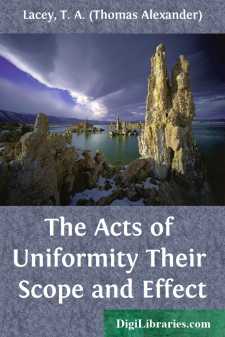History
- Africa 30
- Americas (North Central South West Indies) 50
- Ancient 68
- Asia 58
- Australia & New Zealand 8
- Canada 41
- Caribbean & West Indies 1
- Civilization 20
- Eastern Europe 12
- Europe 310
- Expeditions & Discoveries 60
- General 77
- Historical Geography 1
- Jewish 9
- Latin America 3
- Medieval 8
- Middle East 14
- Military 248
- Revolutionary 8
- Study & Teaching 5
- United States 353
- Western Europe 56
- World 13
History Books
Sort by:
There is no one of the Pioneers of this continent whose achievements equal those of the Chevalier Robert de la Salle. He passed over thousands of miles of lakes and rivers in the birch canoe. He traversed countless leagues of prairie and forest, on foot, guided by the moccasined Indian, threading trails which the white man's foot had never trod, and penetrating the villages and the wigwams of...
more...
CHAPTER I. SOME men choose to live in crowded cities;—others are pleased with the peaceful quiet of a country farm; while some love to roam through wild forests, and make their homes in the wilderness. The man of whom I shall now speak, was one of this last class. Perhaps you never heard of Daniel Boone, the Kentucky rifleman. If not, then I have a strange and interesting story to tell you. If, when...
more...
The Acts of Uniformity are incidents in a great movement. They are far from being the most important of its incidents. Their importance has perhaps been exaggerated, and their purport is commonly misunderstood. My object is to place them in their true relation to other incidents. It is useless to study them apart; they cannot be understood except as details of a connected history. I shall confine...
more...
CHAPTER I THE FOUNDERS OF ACADIA The name Acadia, [Footnote: The origin of the name is uncertain. By some authorities it is supposed to be derived from the Micmac algaty, signifying a camp or settlement. Others have traced it to the Micmac akade, meaning a place where something abounds. Thus, Sunakade (Shunacadie, C. B.), the cranberry place; Seguboon-akade (Shubenacadie), the place of the potato, etc....
more...
CHAPTER I THEODORE ROOSEVELT AND THE ABOLITIONISTS The following is an extract from Theodore Roosevelt's biography of Thomas H. Benton in Houghton, Mifflin, & Co.'s American Statesmen Series, published in 1887: "Owing to a variety of causes, the Abolitionists have received an immense amount of hysterical praise which they do not deserve, and have been credited with deeds done by other...
more...
EMANCIPATION UNDER THE WAR POWER. Extracts from the speech of John Quincy Adams, delivered in the U.S.House of Representatives, April 14 and 15, 1842, on War with GreatBritain and Mexico:— What I say is involuntary, because the subject has been brought into the House from another quarter, as the gentleman himself admits. I would leave that institution to the exclusive consideration and management of...
more...
CANADIANS, OLD AND NEW The conquest of Canada by British arms in the Seven Years' War gave rise to a situation in the colony which was fraught with tragic possibilities. It placed the French inhabitants under the sway of an alien race—a race of another language, of another religion, of other laws, and which differed from them profoundly in temperament and political outlook. Elsewhere—in...
more...
TO AN IMPARTIAL WORLD. No. I. The unconstitutional oppression long and unremittingly practised upon the colonists of Texas, having at length become insupportable, and having impelled them to take up arms in defence of their rights and liberties, it is due to the world that their motives, conduct and causes of complaint should be fully made known. In order to do this it will be necessary to explain the...
more...
THE TRAIL The trail is narrow—often but the width of the pony's feet, a tiny path that leads on and on. It is always ahead, sometimes bold and wide, as when it leads the way through the forest; often narrow, as when it hugs the sides of the precipice; sometimes even hiding for a time in river bottom or swamp, or covered by the débris of last winter's avalanche. Sometimes it picks its...
more...
by:
John Reed
On the platform sat the leaders of the old Tsay-ee-kah-for the last time dominating the turbulent Soviets, which they had ruled from the first days, and which were now risen against them. It was the end of the first period of the Russian revolution, which these men had attempted to guide in careful ways…. The three greatest of them were not there: Kerensky, flying to the front through country towns...
more...











